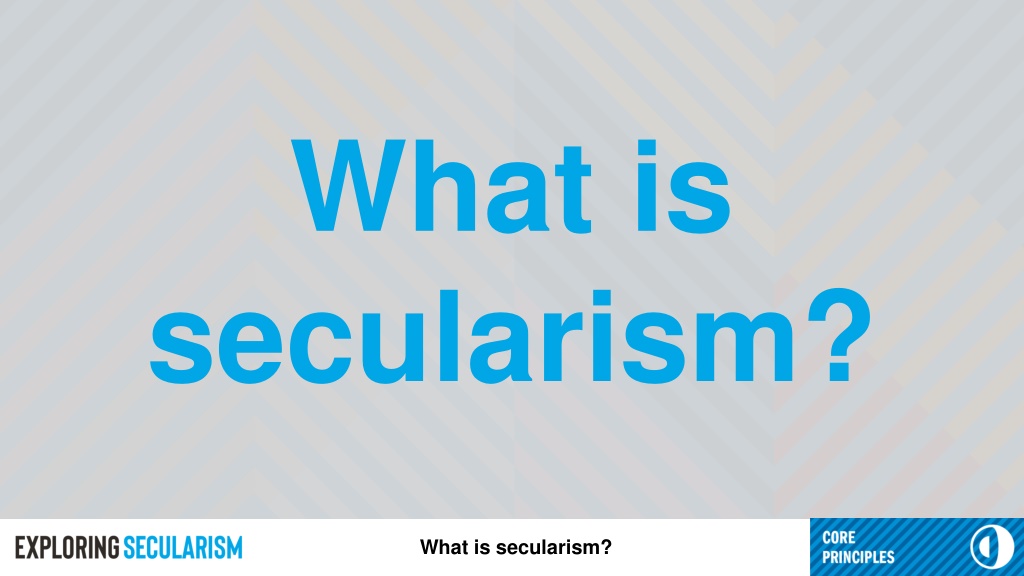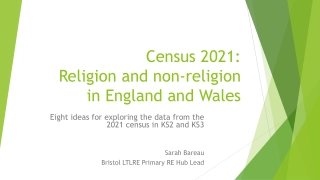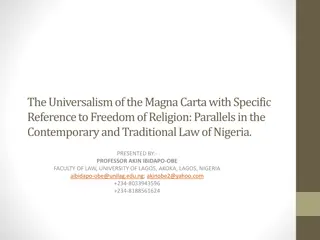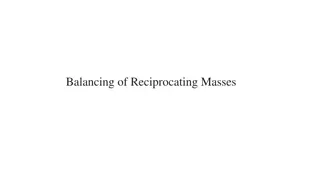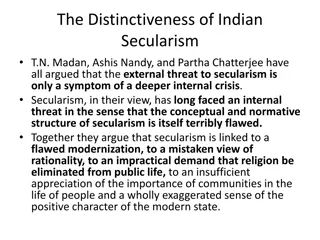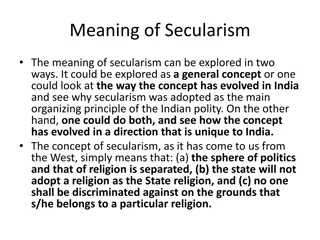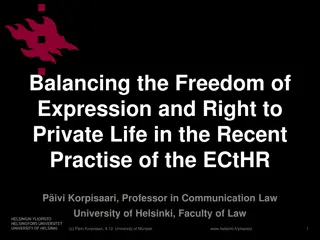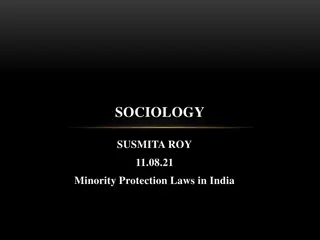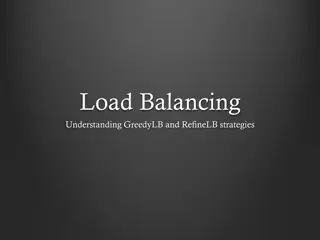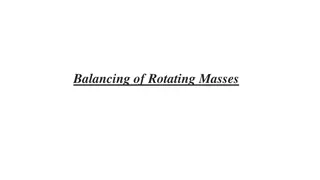Understanding Secularism: Balancing Freedom of Religion
Secularism encompasses a range of ideas aimed at balancing freedom of and from religion with other rights. It advocates for the separation of religious institutions from state institutions to prevent discrimination and privilege based on religious beliefs. Secularism emphasizes the neutrality of the state in matters of religion while allowing for religious participation in the public sphere without dominance. It seeks to promote a society where individuals are free to practice their beliefs without imposing them on others.
Download Presentation

Please find below an Image/Link to download the presentation.
The content on the website is provided AS IS for your information and personal use only. It may not be sold, licensed, or shared on other websites without obtaining consent from the author. Download presentation by click this link. If you encounter any issues during the download, it is possible that the publisher has removed the file from their server.
E N D
Presentation Transcript
What is secularism? What is secularism?
When we talk about religion in society, lots of people notice things like: What is secularism?
People have different worldviews and ideas about how best to live. These often include disagreements over religion or irreligion. Some ideas about how best to live are compatible or widely shared despite different worldviews. Some ideas about how best to live are incompatible with or exclusive to certain worldviews. What is secularism?
Religion or irreligion can be used to inspire positive social actions. Religion or irreligion can be used to inspire negative social actions. Some people experience unfair advantages because of religion. Some people experience unfair disadvantages because of religion. What is secularism?
Peoples ideas of what gods want often coincide with their own desires or moral preferences. Making particular beliefs about religion required or favoured over others has led to bad outcomes. What is secularism?
Once we notice these things, there are lots of different ideas about how we should respond. One of these ideas is called secularism. What is secularism?
Q1. What is secularism? What is secularism?
Secularism is a range of ideas about how to balance freedom of and from religion with other rights. Secularists believe that religious beliefs and identities should not be privileged or discriminated against. Secularism has three key principles: What is secularism?
1. Separation of religious institutions from state institutions and a public sphere where religion may participate, but not dominate. What is secularism?
2. Freedom to practise your faith or beliefs without harming others, or to change it or not have one, according to your conscience. What is secularism?
3. Equality, so that your religious beliefs or lack of them doesn t put others at an advantage or a disadvantage. What is secularism?
Q2. What do you think of this definition? What is secularism?
People who support or oppose secularism have lots of different ideas about why it might make societies fairer or not. Because different people can have different ethical stances informed by their worldviews, secularists believe: What is secularism?
Personal ethical preferences arising from religious, non-religious or irreligious convictions should not be presumed to be of more or less worth. So Personal ethical preferences aren t sufficient to compel others. Rules which affect others need to be justified. And> What is secularism?
We can persuade people to agree with our personal ethical preferences, but we can t force them to.. So Sometimes we need to protect people from having others personal ethical preferences imposed on them. What is secularism?
Q3. How is secularism relevant to this subject? What is secularism?
Q4. What does secular mean? What is secularism?
What does secular mean? Secular means religiously neutral or unrelated to religion e.g. brushing your teeth is a secular activity. Beyond this simple definition, secular is a contested adjective. What is secularism?
What does secular mean? Many religious traditions draw a distinction between the temporal and the divine, or the worldly and the spiritual, considering that both have their place. In some contexts, secular is used to mean non- religious What is secularism?
Potential meanings of secular: Being unrelated to religion Being related to worldly, practical or temporal concerns Being non-religious Being irreligious Being related to secularism Being justified in non-religious (rather than religious or irreligious) terms What is secularism?
Q5. What do you think of this definition? What is secularism?
Q6. How might the difference between secular and non-secular be relevant to this subject? What is secularism?
